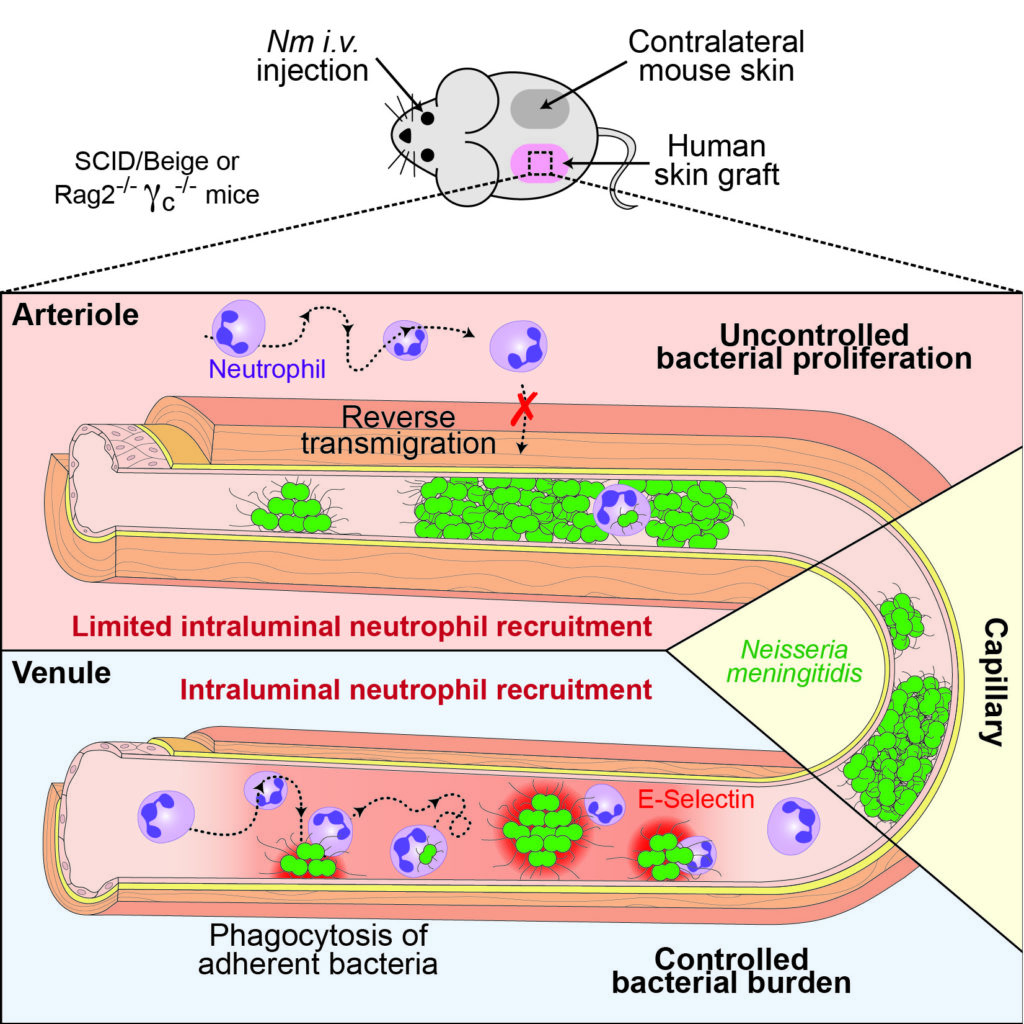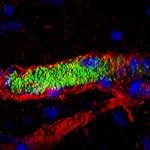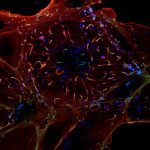The fulminant nature of Neisseria meningitidis (Nm) infections, causing meningitis and/or sepsis, suggests that the innate immune system is unable to fully control bacterial proliferation in the vasculature.
To better understand how Nm evades the immune system, we combined the use of a human skin xenograft mouse model, intravital imaging, analysis of skin biopsies by immunofluorescence and flow cytometry to assess the impact of N. meningitidis peripheral infections on the recruitment and function of neutrophils.
We observe that neutrophils accumulate at the vicinity of certain infected vessels, in which bacteria adhere to the vascular wall and auto-aggregate. While controlling to some extent the number of adherent bacteria and protecting vessels from the infection-induced vascular damage, neutrophils cannot fully fight the infection. Why? We show that this is due to the differential ability of neutrophils to be recruited to infected arterioles, capillaries and venules. The preferential recruitment of neutrophils to infected venules relies on the restricted expression of E-selectin, allowing neutrophils to phagocytose adherent meningococci and effectively control the infection. In contrast, neutrophils are barely recruited to infected arterioles and capillaries, leading to the uncontrolled proliferation of bacteria within these vessel types. Therefore, the ability of Neisseria meningitidis to colonize vascular beds in which neutrophils are poorly recruited creates a site of immune privilege allowing the progression of the infection.
Source
Colonization of dermal arterioles by Neisseria meningitidis provides a safe haven from neutrophils. Nature Communications, 27 July 2021.
To read the article: here




